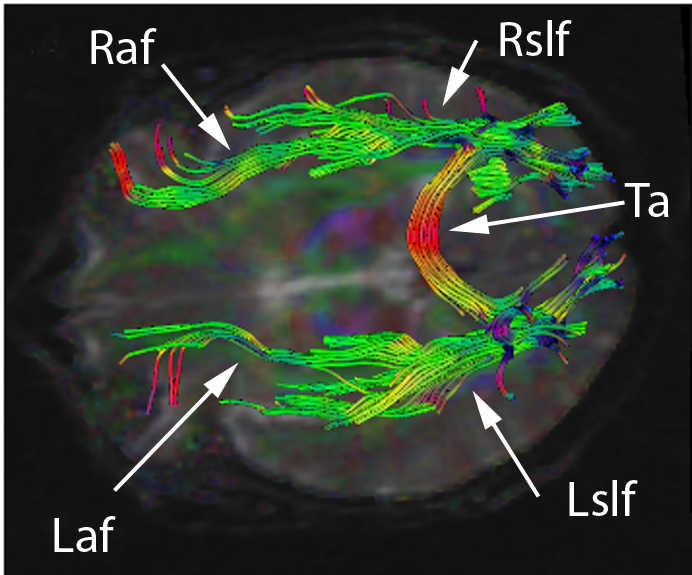Anomic aphasia
(Redirected from Dysnomia (disorder))
Editor-In-Chief: Prab R Tumpati, MD
Obesity, Sleep & Internal medicine
Founder, WikiMD Wellnesspedia &
W8MD medical weight loss NYC and sleep center NYC
| Anomic aphasia | |
|---|---|

| |
| Synonyms | Nominal aphasia, amnesic aphasia |
| Pronounce | N/A |
| Specialty | N/A |
| Symptoms | Difficulty in word retrieval, especially nouns and verbs |
| Complications | N/A |
| Onset | Typically acquired |
| Duration | Chronic |
| Types | N/A |
| Causes | Brain injury, stroke, neurodegenerative disease |
| Risks | Age, brain trauma, cerebrovascular accident |
| Diagnosis | Neuropsychological test, brain imaging |
| Differential diagnosis | Other types of aphasia, dementia |
| Prevention | N/A |
| Treatment | Speech therapy, language therapy |
| Medication | N/A |
| Prognosis | Varies, often chronic |
| Frequency | Common in stroke survivors |
| Deaths | N/A |
Anomic aphasia is a type of aphasia characterized by problems recalling words or names. Sufferers of anomic aphasia, also known as nominal aphasia or anomia, can understand language perfectly and their speech is fluent and grammatically correct, but they frequently can't find the words they want to say.
Overview[edit | edit source]
Anomic aphasia is a mild form of aphasia, a language disorder that can affect a person's ability to communicate. It is caused by damage to various parts of the brain that are involved in language function. This damage can be the result of a stroke, brain tumor, head injury, or neurodegenerative disease.
Symptoms[edit | edit source]
The primary symptom of anomic aphasia is the inability to recall the correct name for objects, people, or places. This can be particularly frustrating for the individual, as they are aware of what they want to say but cannot find the right words. Other language abilities such as reading, writing, and understanding spoken language are typically unaffected.
Diagnosis[edit | edit source]
Diagnosis of anomic aphasia is typically made by a neurologist or speech-language pathologist through a series of language and cognitive tests. These tests assess the individual's ability to name objects, repeat phrases, follow instructions, and engage in conversation.
Treatment[edit | edit source]
Treatment for anomic aphasia typically involves speech therapy. The goal of therapy is to improve the individual's ability to communicate by teaching strategies to help compensate for the word-finding difficulties. This may involve using synonyms, describing the object, or using gestures.
Prognosis[edit | edit source]
The prognosis for individuals with anomic aphasia varies depending on the cause and extent of the brain damage. Some individuals may experience significant improvement with therapy, while others may continue to struggle with word-finding difficulties.
See also[edit | edit source]
Search WikiMD
Ad.Tired of being Overweight? Try W8MD's physician weight loss program.
Semaglutide (Ozempic / Wegovy and Tirzepatide (Mounjaro / Zepbound) available.
Advertise on WikiMD
|
WikiMD's Wellness Encyclopedia |
| Let Food Be Thy Medicine Medicine Thy Food - Hippocrates |
Translate this page: - East Asian
中文,
日本,
한국어,
South Asian
हिन्दी,
தமிழ்,
తెలుగు,
Urdu,
ಕನ್ನಡ,
Southeast Asian
Indonesian,
Vietnamese,
Thai,
မြန်မာဘာသာ,
বাংলা
European
español,
Deutsch,
français,
Greek,
português do Brasil,
polski,
română,
русский,
Nederlands,
norsk,
svenska,
suomi,
Italian
Middle Eastern & African
عربى,
Turkish,
Persian,
Hebrew,
Afrikaans,
isiZulu,
Kiswahili,
Other
Bulgarian,
Hungarian,
Czech,
Swedish,
മലയാളം,
मराठी,
ਪੰਜਾਬੀ,
ગુજરાતી,
Portuguese,
Ukrainian
Medical Disclaimer: WikiMD is not a substitute for professional medical advice. The information on WikiMD is provided as an information resource only, may be incorrect, outdated or misleading, and is not to be used or relied on for any diagnostic or treatment purposes. Please consult your health care provider before making any healthcare decisions or for guidance about a specific medical condition. WikiMD expressly disclaims responsibility, and shall have no liability, for any damages, loss, injury, or liability whatsoever suffered as a result of your reliance on the information contained in this site. By visiting this site you agree to the foregoing terms and conditions, which may from time to time be changed or supplemented by WikiMD. If you do not agree to the foregoing terms and conditions, you should not enter or use this site. See full disclaimer.
Credits:Most images are courtesy of Wikimedia commons, and templates, categories Wikipedia, licensed under CC BY SA or similar.
Contributors: Prab R. Tumpati, MD

